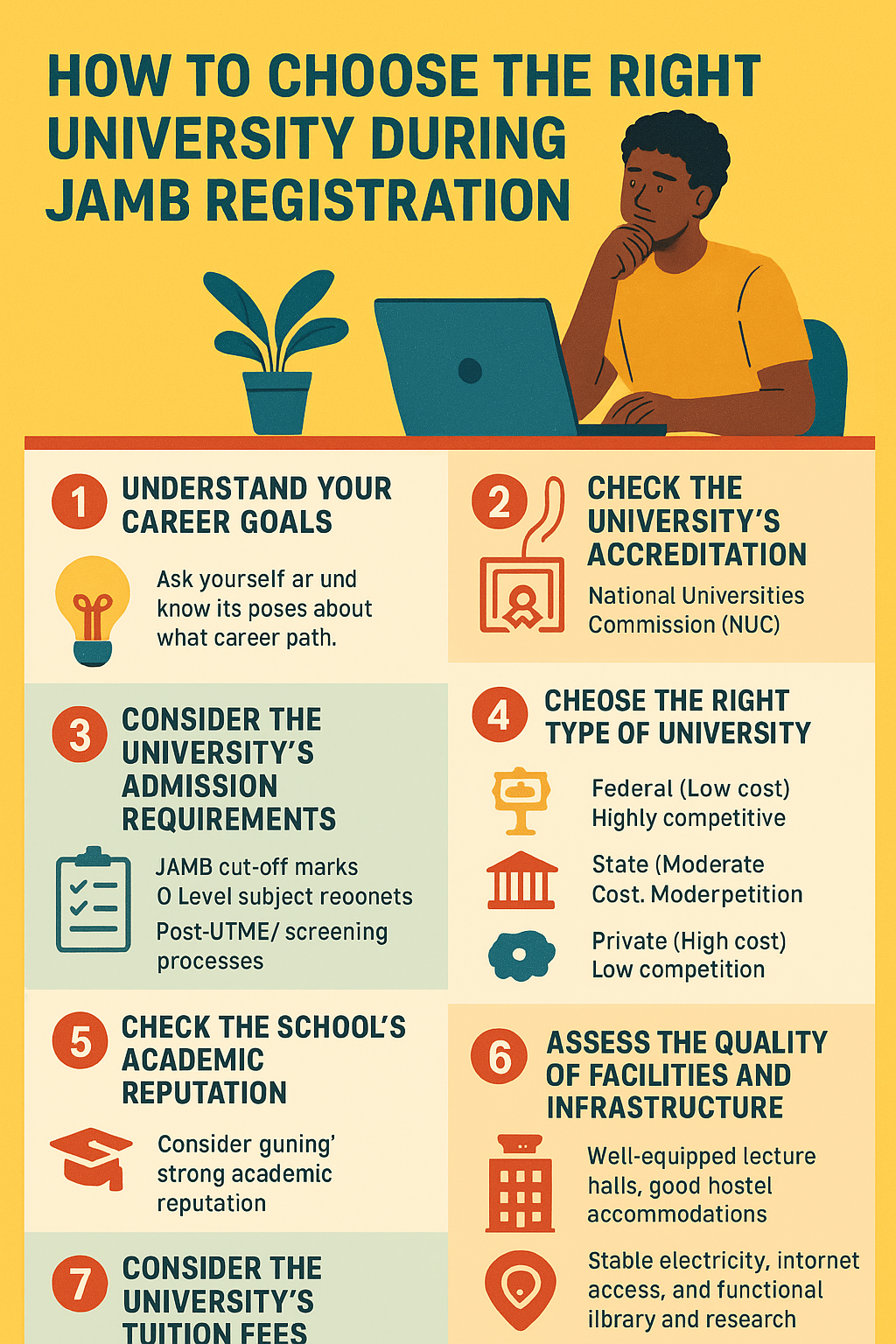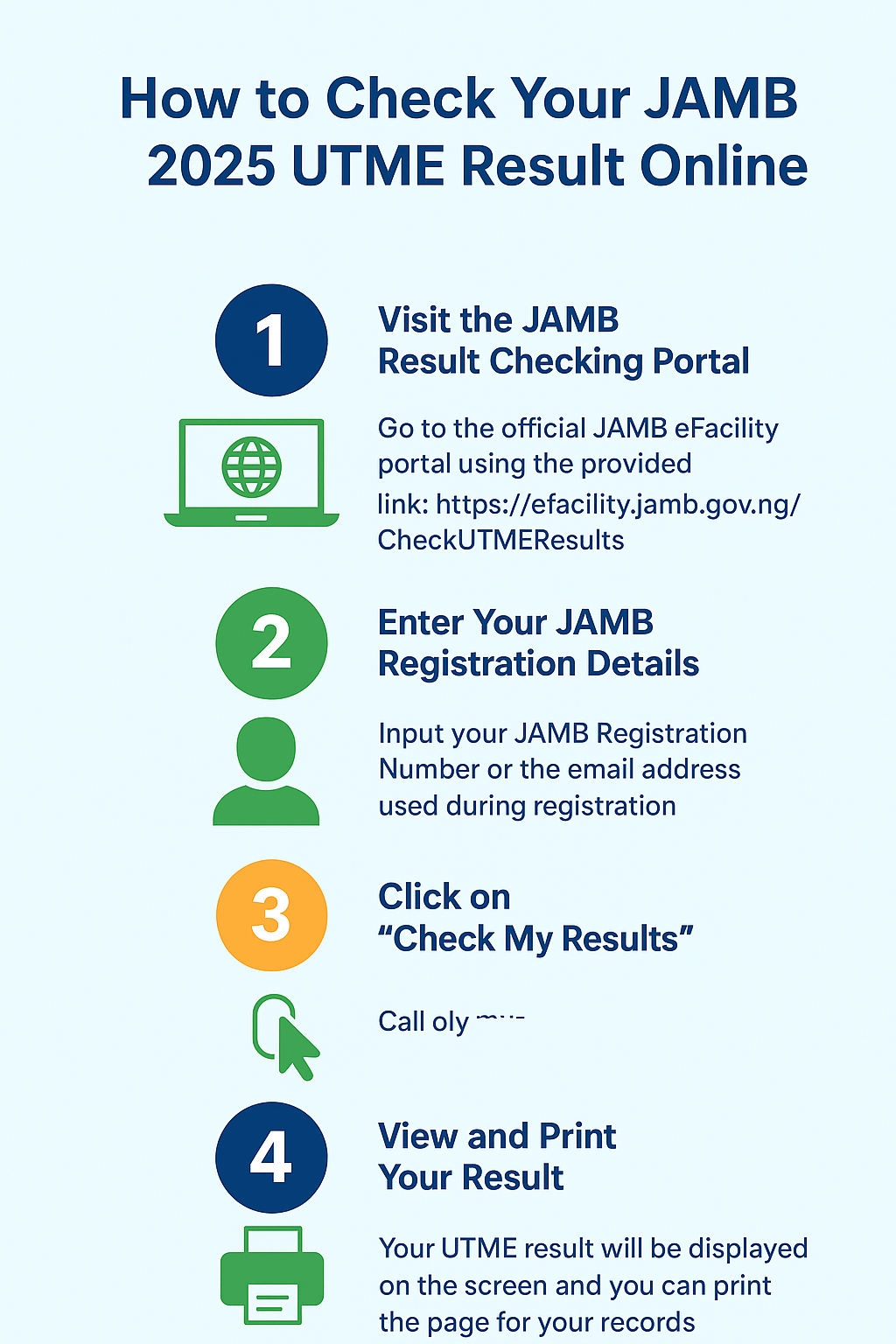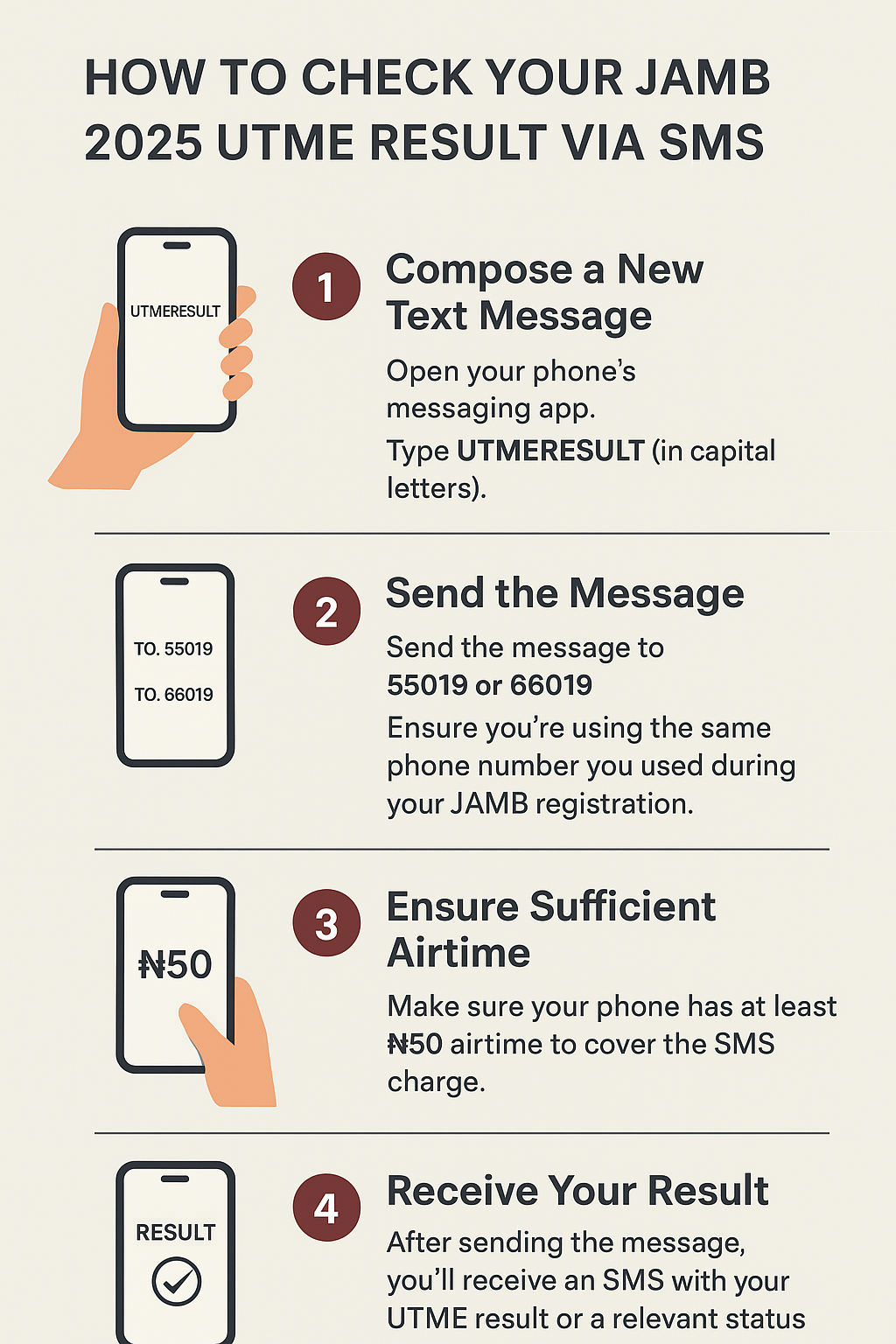Choosing the right university during your JAMB 2025 registration is one of the biggest decisions you will make. The school you select will shape your education quality, career opportunities, and overall experience.
Here’s a complete guide to help you pick the right university in Nigeria.
Contents
- 1. Match Your Career Goals with the Right Course
- 2. Verify Accreditation (NUC Approval)
- 3. Understand Admission Requirements
- 4. Choose the Right Category of University
- 5. Check the Academic Reputation
- 6. Consider Location & Lifestyle
- 7. Review Facilities and Infrastructure
- 8. Tuition and Hidden Costs
- 9. Strike History
- 10. Job Opportunities & Graduate Success
- ✅ Key Takeaway
1. Match Your Career Goals with the Right Course
Before choosing a school, ask:
- What am I passionate about?
- Does this course align with my WAEC/NECO subjects?
- Will it give me strong job prospects?
👉 Example: If you dream of being a doctor, look for schools with accredited Medicine programs and teaching hospitals.
2. Verify Accreditation (NUC Approval)
Not every Nigerian university is accredited for all courses. To avoid problems:
- Confirm the course is approved by the NUC.
- Check the university’s past record in producing quality graduates.
📌 Tip: Visit the NUC website or the university’s official portal before registering.
3. Understand Admission Requirements
Each university sets unique criteria. Pay attention to:
- JAMB Cut-off Mark – Federal universities usually have the highest.
- O’Level Subject Combinations – Some schools demand specific subjects.
- Post-UTME or Screening – Some schools test beyond JAMB scores.
💡 Use the JAMB brochure to avoid mistakes.
4. Choose the Right Category of University
- Federal Universities – Affordable but highly competitive (UI, UNILAG, ABU).
- State Universities – Moderate cost, less competition (LASU, OAU, RSU).
- Private Universities – Stable calendar, modern facilities, but expensive (Covenant, Babcock, Bowen).
📊 See comparison table for quick decision-making:
| University Type | Cost | Competition | Example Schools |
|---|---|---|---|
| Federal | Low | Very High | UNILAG, UI, ABU |
| State | Medium | Moderate | LASU, OAU, RSU |
| Private | High | Low | Babcock, Bowen |
5. Check the Academic Reputation
Some schools are stronger in certain fields:
- Medicine – UI, UNILAG, OAU
- Engineering – FUTA, UNILORIN, ABU
- Law – UNILAG, UNN, ABU
- ICT & Tech – FUTA, Covenant, Babcock
6. Consider Location & Lifestyle
Think about:
- Distance from home (close vs far).
- Cost of living (Lagos and Abuja are pricey).
- Weather conditions (hot North vs rainy South).
7. Review Facilities and Infrastructure
Look for:
- Standard lecture halls & labs.
- Good hostels.
- Reliable internet & electricity.
- Functional library.
👉 A well-equipped campus boosts your learning experience.
8. Tuition and Hidden Costs
- Federal: Cheapest.
- State: Moderate.
- Private: Expensive.
Don’t forget extra charges like acceptance, accommodation, and faculty fees. Apply for scholarships if needed.
9. Strike History
Frequent ASUU strikes in federal/state schools can delay graduation.
- If you want an uninterrupted calendar, consider private universities.
10. Job Opportunities & Graduate Success
Check if the school has:
- Industry connections.
- Strong internship programs.
- An active alumni network.
Some universities give their graduates an edge in the job market.
✅ Key Takeaway
When choosing a university during JAMB 2025 registration:
- Pick an accredited school with a strong reputation.
- Consider cost, location, and strike history.
- Ensure it aligns with your career goals.
- Look for better job opportunities after graduation.
Take time to research thoroughly, ask questions from students or alumni, and only choose a university that fits your future ambitions and financial situation.
Good luck with your JAMB 2025 registration! 🎓✨



